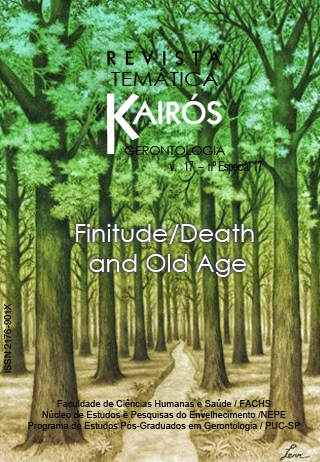Involuntary freedom in elderly widows- Narrative insights
DOI:
https://doi.org/10.23925/2176-901X.2014v17iEspecial17p49-63Palabras clave:
Ageing, Widowhood, Activities.Resumen
Due to the existing age gap between the average life expectancy of males and females, the widowhood process in old age is mainly experienced by women. In light of this, this study aims to understand the state of widowhood from a female perspective, analysing its impact at the level of lifestyle choices, in addition to identifying the changes that took place in the lives of elderly women and to what extent widowhood influences the choice of daily life as well as leisure activities. This is an exploratory-descriptive study that resorts to a qualitative methodology, using a study group comprising 30 elderly widowed women, aged 65 or above. Data were collected during semi-structured individual interviews and its content was analysed with the WebQda Software (Web Qualitative Data Analysis). Results show that becoming a widow gave the elderly a greater sense of independence and freedom. Simultaneously, it also showed that in the early years of widowhood, widows experience more feelings of grief and nostalgia for their loved ones (feeling of missing someone immensely).


